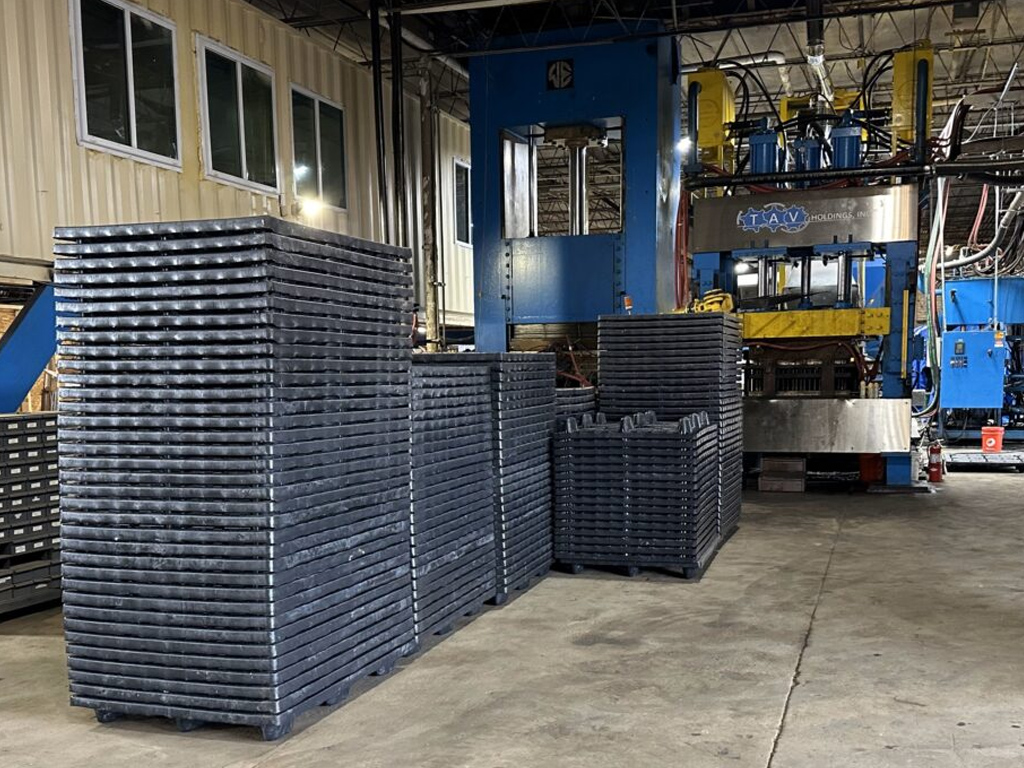In the realm of logistics, where efficiency and sustainability intersect, the choice of pallets plays a pivotal role. While traditional wood pallets have long been the standard, there’s a rising star in the industry: plastic pallets, specifically those crafted from recycled and recovered plastics sourced from landfills. In this era of heightened environmental awareness, the importance of such plastics finished goods cannot be overstated.
How Repurposed Plastic Pallets are Redefining the Logistics Industry
Plastic pallets have emerged as a compelling alternative to their wooden counterparts, offering a myriad of benefits that extend beyond mere functionality. One of the primary advantages lies in their environmental impact. By utilizing recycled and recovered plastics, these pallets breathe new life into materials that would otherwise languish in landfills, contributing to the ever-pressing need for waste reduction and resource conservation.
Why the Need for Plastic Pallets
The significance of this approach cannot be underestimated. Landfills worldwide are brimming with plastics, posing a significant threat to ecosystems and human health. By repurposing these materials into durable pallets, we not only mitigate the burden on landfills but also curb the demand for virgin plastics, thereby reducing the strain on natural resources and minimizing carbon emissions associated with their production.
Moreover, plastic pallets offer unparalleled durability and longevity compared to their wooden counterparts. Constructed from high-density polyethylene (HDPE) or polypropylene (PP), these pallets are impervious to moisture, mold, and pests, ensuring consistent performance even in the harshest environments. Unlike wood, they do not splinter, crack, or warp over time, resulting in lower maintenance costs and enhanced safety in handling and storage operations.


Benefits of Plastic Pallets
Furthermore, plastic pallets are lighter in weight yet boast superior strength-to-weight ratios, allowing for easier handling and transportation. This translates to reduced fuel consumption and carbon emissions during transit, contributing to overall supply chain efficiency and sustainability objectives. Additionally, their uniform design facilitates automated handling systems, streamlining logistics processes and minimizing the risk of product damage.
Beyond their functional attributes, plastic pallets offer versatility in design and customization, catering to diverse industry requirements. From specialized dimensions to integrated features such as RFID and GPS tracking and anti-slip surfaces, these pallets can be tailored to meet the specific needs of various sectors, including food and beverage, pharmaceuticals, automotive, and beyond.
“With the global shift towards sustainability, the future of the pallet is actually plastic. Plastic pallets are more durable and 100% recyclable,” writes SBO. “The best feature is that they can even be embedded with GPS and temperature tracking, resulting in lower loss rates by up to 50%.”
Critics may argue that plastic pallets are not entirely devoid of environmental impact, but advancements in recovery/recycling technologies are continuously improving the recyclability and sustainability of plastic products. Moreover, the lifespan of plastic pallets far exceeds that of wood, extending their utility and minimizing the frequency of disposal.
In the end, the importance of plastics finished goods, particularly plastic pallets crafted from recycled and recovered plastics, cannot be overstated. By harnessing the inherent durability and sustainability of repurposed plastics, we not only optimize logistics operations but also contribute to a more circular economy and a greener future.
TAV Technologies • TAV Commodities Trading • TAV Recycled Products • TAV Construction and Fabrication
© 2025
